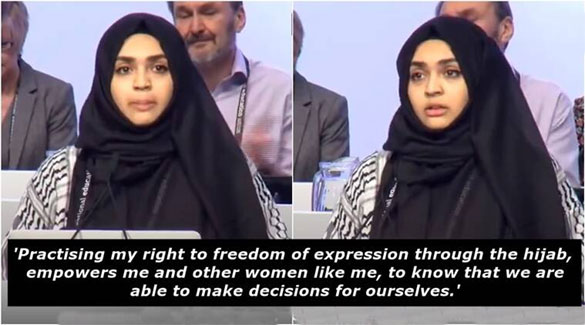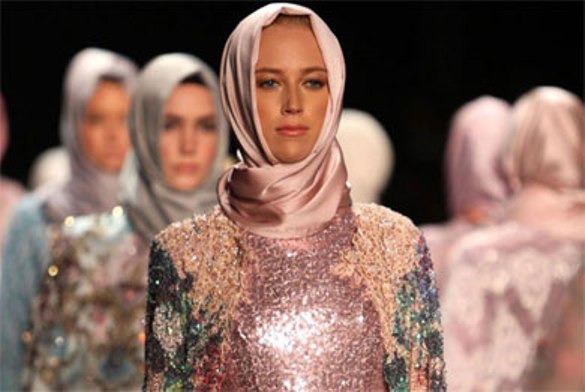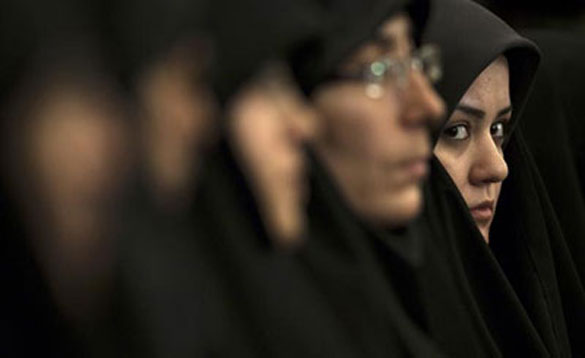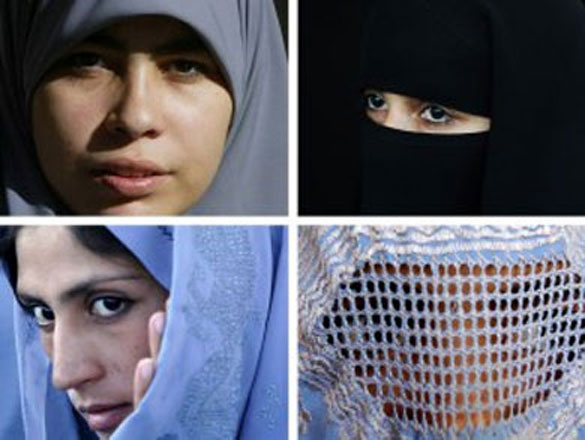
By Arshad Alam, New Age Islam
4 February 2021
Glossing over other important problems which beset the Muslim world, it is mildly farcical that some women ‘choose’ to celebrate the World Hijab Day on the 1st of February. The idea is to invite religious and non-religious women to don the hijab for a day so as to experience that the garment is not really oppressive as it is made out to be. The celebration of hijab is being done in the name of countering ‘Islamophobia’. Muslim women are arguing that their bodies and its appearances have been the special target of this new western racism.

It is interesting to note that the fulcrum of this movement is located in the west, especially the US, where perhaps it is very easy to understand that hijab could be a matter of pure choice of an individual believer. But can the same thing be said about millions of women located in Muslim countries? Is it really a matter of choice for them?
-------------------------------------------------------------------------------
-------------------------------------------------------------------------------
February 1st is also the day when Khomeini returned to Iran, and post the revolution decreed that all women must cover up. One is not sure if the organisers of World Hijab Day are aware of this, but it is a crying shame that it is same date on which women in Iran were denied the choice of dressing up the way they liked. There might not have been a revolutionary decree in other Muslim countries, but the force of convention and dominant Islamic theology have made sure that Muslim women do not have the freedom to take off the veil. Young children are taught to dress ‘modestly’ in Islamic schools and when they become adults, this piece of cloth becomes an inalienable part of their bodily comportment.
Movements ranging from the Islamic Brotherhood to the Jamat e Islami, have all understood the hijab as an essential expression of political Islam. So configuring the hijab as a matter of choice might be true for some individuals but for the majority of Muslim women, it simply isn’t. Rather there are powerful regimes which are heavily invested in making the hijab as the distinctive symbol of Muslim identity. Marketing it as choice is simply sinister as it gives the impression that there is no societal and religious imposition behind the adoption of the veil.

Choice has almost become a sacred word. When all other arguments fail, people say that it is a question of their choice and therefore it should be respected. Liberals often fall for this kind of logic and in fact go to lengths to justify veils as an individual choice. Granted that for some it can be a matter of choice, but then should all choices be respected? Some Muslim communities across the world practice female circumcision and they too have been arguing that their religious choice should be respected. How many of those celebrating the hijab as a choice would extend the same courtesy to such a heinous practice? A difference must be made between choices that are empowering and choices that might have the appearance of empowerment but in fact does just the opposite.
-------------------------------------------------------------------------------
-------------------------------------------------------------------------------
The hijab has never been about choice. In fact, it is a religious commandment. The dominant Islamic theology commands and expects the separation of spaces between men and women. Women have been put in charge of men as Islamic theology understands the latter as being the primary providers. The hijab is certainly empowering in the sense that it breaks down the traditional separation of spaces between men and women. To the extent that it allows Muslim women to claim and reclaim public spaces, it must be welcome. It is quite clear from the neo-advocates of the hijab that they are hardly bound by the traditional interpretation of religion. Had that been the case, they would have spoken from behind a curtain as is enjoined in the Islamic sharia. They hardly do so. The women who are advocating the hijab are all university educated Muslims who speak before thousands of men.
Some would say that these women are engaged in selective interpretation of religious texts, but then so have been the bearded men since centuries. Just because women have started doing it now should be no reason for alarm. Ultimately, all theology is about interpretation, and one should not have a problem if Muslim women have started exercising it too. It is the idea behind such a hermeneutics that needs to be questioned.

And that idea seems to be the legitimation of a certain modesty culture which Islam enjoins on women. If one asks the simple question why Islam commands only women to cover themselves but not the men, then it becomes clear that the religion assumes fundamental differences between the two genders. Women are to be secluded and there are express commands forbidding women to show their Awra. What constitutes Awra is a matter of interpretation; in some cultures almost the entirety of women’s body is to be covered while in others the hands and the face are excluded. It seems that there is a general consensus amongst the theologians that women’s hair are an extremely important part of their Awra and hence needs to be hidden at all times except while in privacy.
It is not surprising therefore that most Muslim cultures have some form of head covering and even those who do not normally adhere to this norm would do so on special occasions. Women’s hair is thus considered tempting for men but ironically it is women who are supposed to cover them up. The pressure and responsibility of being ‘modest’ rests on the women and if she is not, then the understanding is that she has herself invited trouble. It is this patriarchal and sexist understanding which has informed the traditionalist reading of Islam and which needs to be questioned.

The pro veil advocacy in this sense is thus nothing more than an extension of such a traditionalist gender understanding which sustains itself on positing a fundamental inequality between men and women. Given the education and agency which some of the pro-hijab women have acquired, their activism would have been put to much better use had they started to question this religion ordained inequality rather than uncritically celebrating the hijab as a matter of choice.
-----
Arshad Alam is a columnist with NewAgeIslam.com
New Age Islam, Islam Online, Islamic Website, African Muslim News, Arab World News, South Asia News, Indian Muslim News, World Muslim News, Women in Islam, Islamic Feminism, Arab Women, Women In Arab, Islamophobia in America, Muslim Women in West, Islam Women and Feminism




 Moderate Islamist here
Moderate Islamist here


0 comments:
Post a Comment